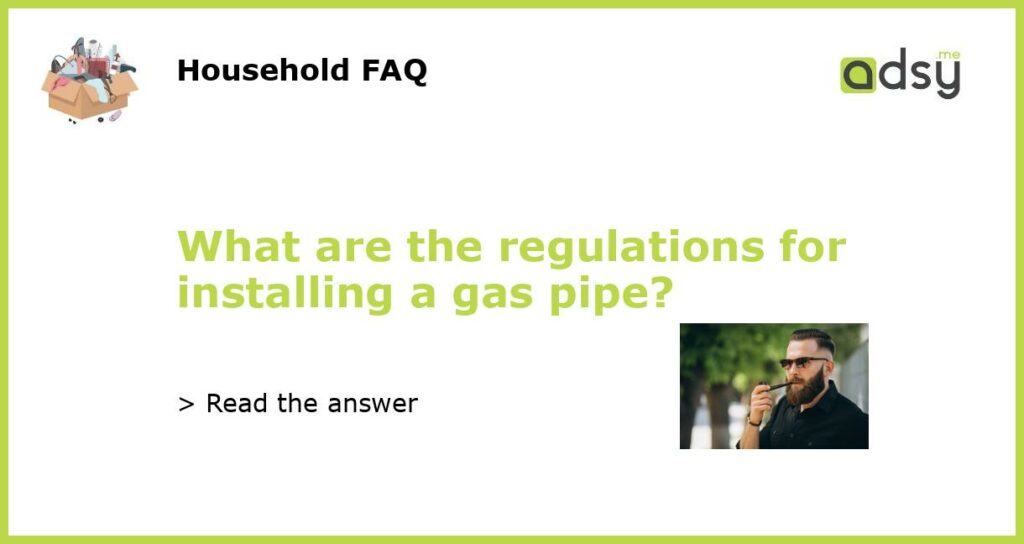Understanding the regulations for installing a gas pipe
Gas is a common and essential fuel used in many homes and industries across the world. However, to ensure the safety of people and property, specific regulations govern the installation of gas pipes. Whether you are installing a new gas pipe or replacing an existing one, it is essential to understand these regulations and comply with them. Here is what you need to know:
The types of regulations governing gas pipe installation
Several types of regulations govern the installation of gas pipes. These include national codes, state and local codes, and industry standards. National codes, such as the National Fuel Gas Code, provide overarching requirements that all states and local jurisdictions must adhere to. State and local codes may modify these requirements to suit their specific needs, depending on the geography, climate, and other factors. Industry standards, such as those provided by the American Gas Association, are voluntary but may provide additional guidance on best practices for gas pipe installation.
The requirements for gas pipe materials
Gas pipes are typically made of steel, copper, or plastic. However, the specific material and size of the pipe must meet certain requirements. For example, the National Fuel Gas Code requires that gas pipes be made of steel or wrought iron for buildings taller than three stories. Copper pipes are only allowed for low-pressure systems, while plastic pipes must be marked as gas-approved and meet specific standards for strength and durability.
The rules for gas pipe installation
The installation of gas pipes must follow specific rules to ensure safety and efficient operation. These rules include proper sizing of the pipe based on the expected gas load, proper support and bracing to prevent damage or ruptures, proper location of the pipes to reduce the risk of damage or corrosion, and proper sealing of the joints to prevent leaks. The installation process may also require permits and inspections from local authorities to ensure compliance with these rules.
The importance of hiring qualified professionals for gas pipe installation
While some homeowners may attempt gas pipe installation as a DIY project, it is highly recommended to hire qualified professionals for this task. Gas leaks can be deadly, and an improperly installed gas pipe can pose serious risks to people and property. Qualified professionals have the training, experience, and tools to install gas pipes according to regulations and ensure that they operate safely and efficiently. To further ensure safety, consider hiring professionals who are licensed, insured, and have a good reputation in the industry.






